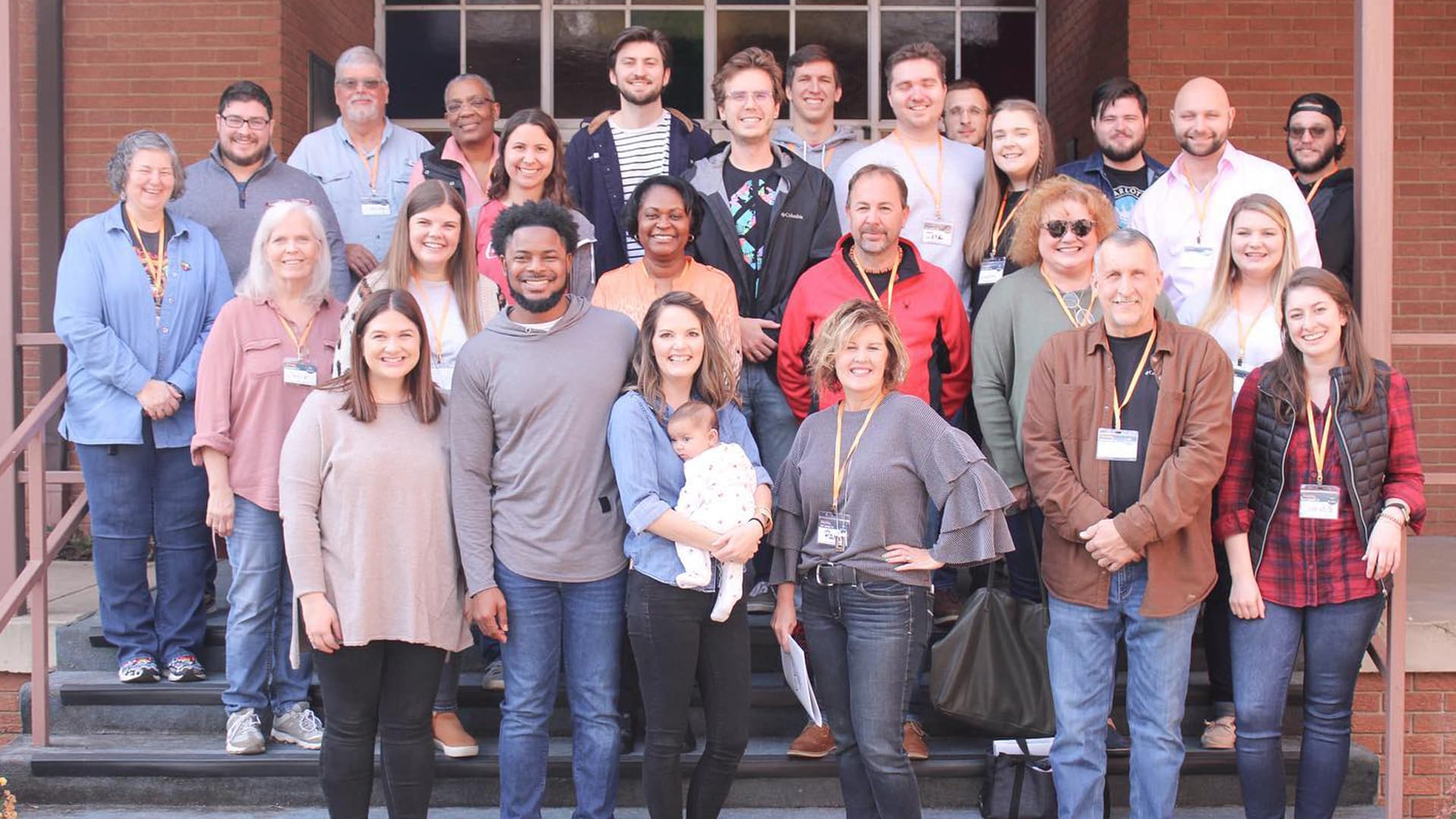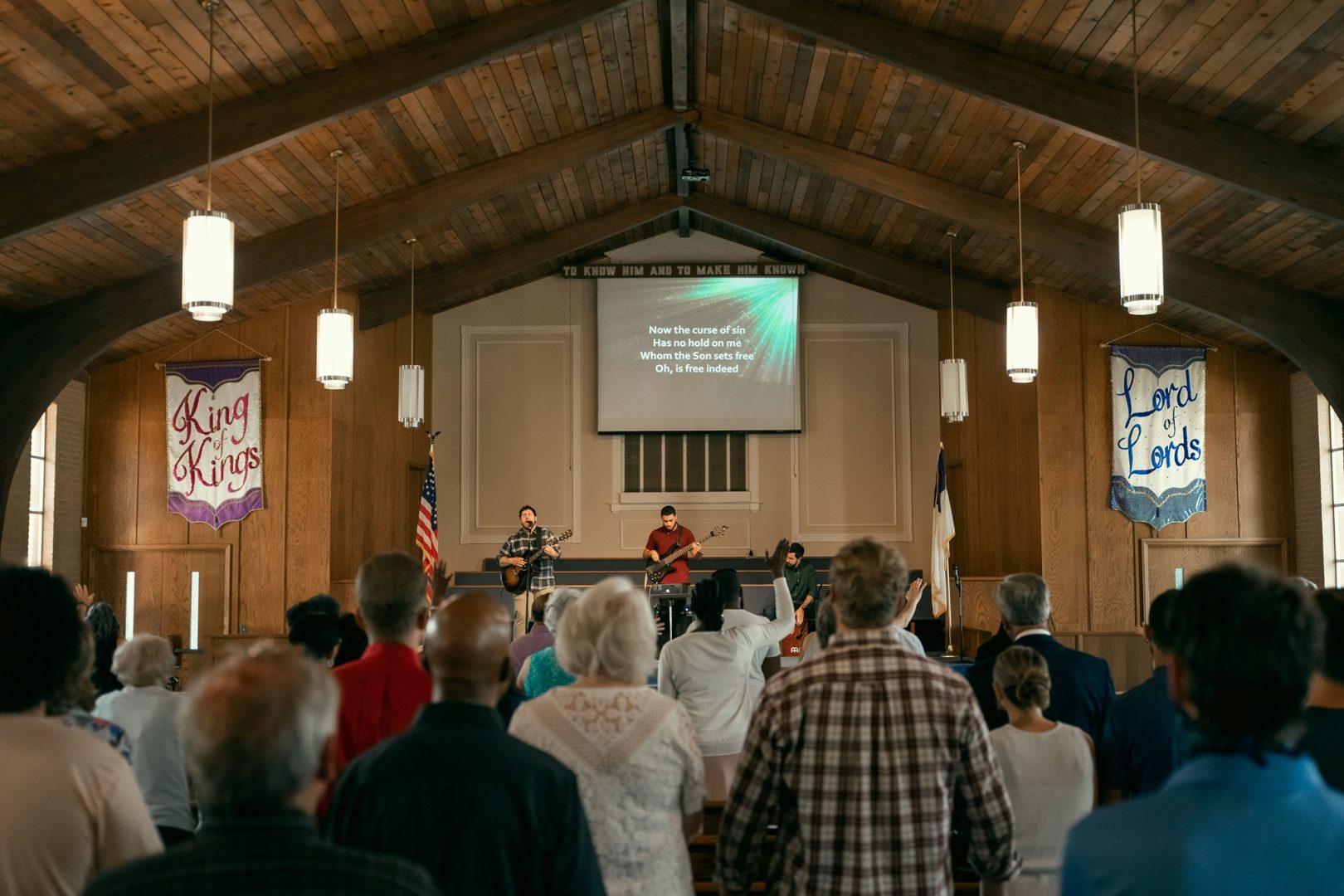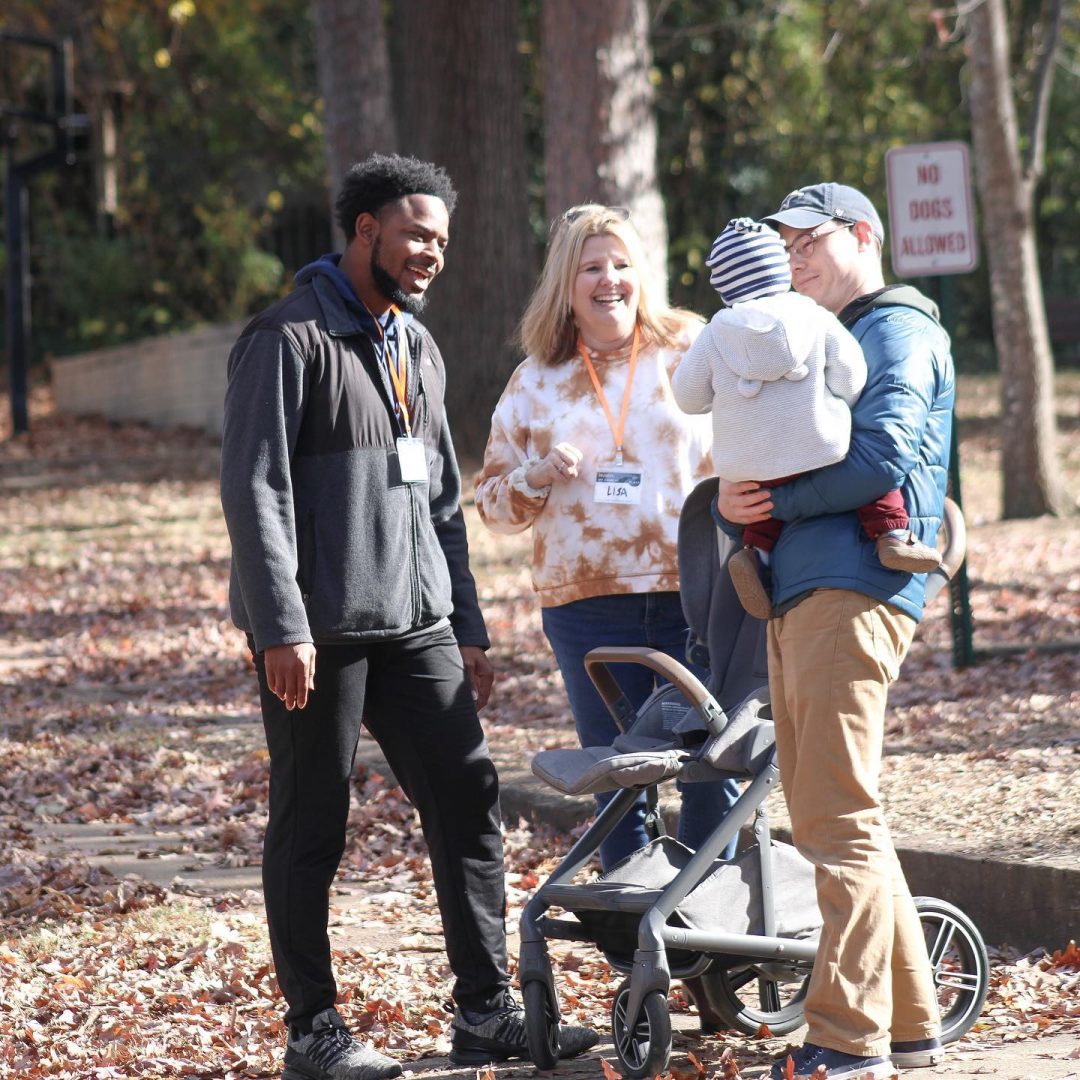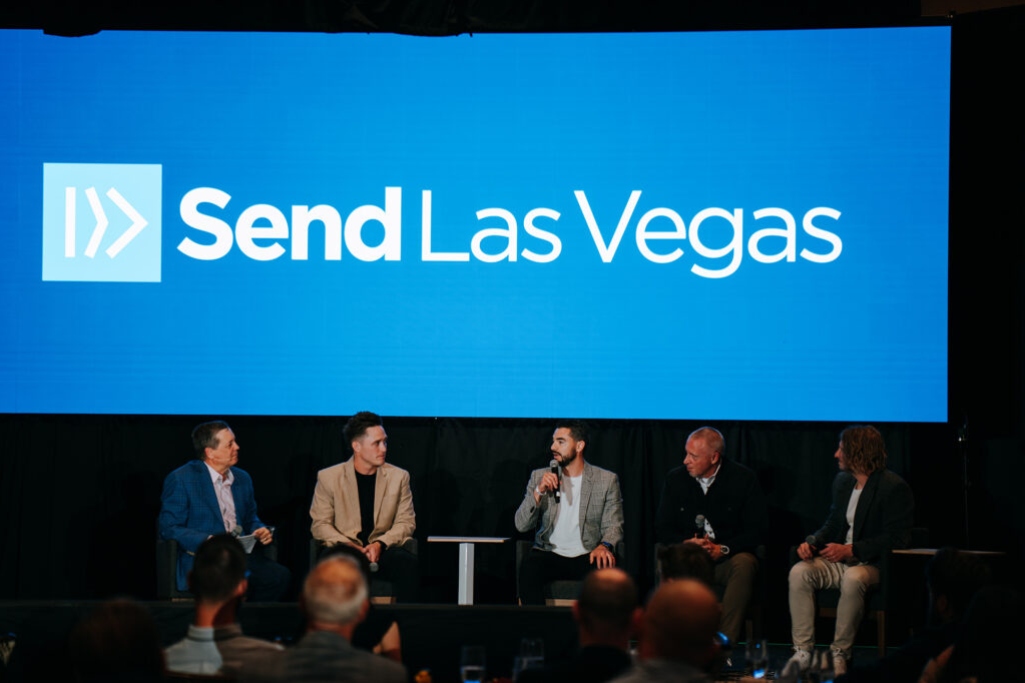
At the corner of 36th St. and The Plaza – one of the busiest intersections in uptown Charlotte – sits Plaza Baptist Church.
It’s tucked in the NoDa (North Davidson) side of “the line,” said lead pastor Brian Davis, but it’s located right between two communities.
“You have NoDa, and you have Shamrock. Shamrock is predominantly black and brown and largely low income. NoDa is the complete opposite.”
“The line” is the road called The Plaza.
“There’s a significant homeless population here (Shamrock). You don’t see them in NoDa. They don’t cross the line. You’ll see joggers in NoDa. They get to the line, and they turn around. They don’t cross the line.
“One of the only times we see lines being crossed is at church. You have people walking across the street to get to church – on both sides.”
Davis senses that the surrounding community has noticed something happening at Plaza Baptist, though they may be uncertain of what it is. But he knows that local residents have noticed a once visibly empty parking lot increasingly full every weekend. And if they were to enter on a Sunday, he said, they would see a crowd different from what’s outside.
When Plaza members are asked about the new activity at the church, they respond more and more with, “Resurrection. That’s what’s happening.”
Sent toward a new vision
Plaza relaunched as a replant only six months ago, with 20 of the remaining members from the original congregation and a team of 30 sent from Hickory Grove Baptist Church, where Davis previously served as a college pastor.
In December 2020, Davis and his wife were on a date in uptown Charlotte and were struck by the area’s young population and how “under-resourced it was by way of gospel-centered churches.”
They began praying about the possibility of planting a church there.
“Never did it cross my mind that there’s a collection of declining churches. We drive by these declining churches every day, and it’s almost as if we don’t see them,” Davis said.
About a week later, Hickory Grove’s senior pastor, Clint Pressley, approached Davis about a church he feared would close its doors if nothing changed.
“It’s near uptown. It’s in NoDa,” Pressley told him.
Pressley said Davis’ “godly intelligence and deep love for the Bible were immediately evident” when he first joined the Hickory Grove staff several years ago. “His love for the church and commitment to making disciples bore great fruit in our own congregation.”
“When God providentially brought Hickory Grove and Plaza together, I was convinced that he would be a great fit for the situation.”
Davis initially planned to preach at Plaza for a few weeks and then re-evaluate. He quickly loved the church, and the church loved him.
Soon he found himself saying, “Let’s just see what can happen. Let’s see what God can do with this.”
In March 2021, Davis became Plaza’s interim pastor. He worked with Hickory Grove to develop a “document of understanding” – a two-year plan to essentially restart the church with a new vision, direction and identity.
“We were intentionally really broad,” Davis said. “We just had a general direction ‘that way.’”
Plaza’s members seemed excited, and in May, they voted to approve the document and call Davis as lead pastor. The rest of the launch team gathered throughout the summer.
Hickory Grove “formulated a joyful partnership with Plaza and sent 30 or so of our most enthusiastic members out with Brian to love that church and lead it back to health,” Pressley said. “And by God’s grace, they are well on their way.”
Gospel transformation and gospel unity
Locals often refer to NoDa as “the cool part of town,” said Davis. Every other building is a new coffee shop or tattoo parlor. And threading through the culture is a palpable objection to Christianity.
The community isn’t necessarily atheistic, said Davis. What Plaza’s people often hear from their neighbors are stories of hurt from past experiences with churches and Christians and disillusionment from how Christians handled the pandemic or the latest presidential election.
So Plaza is motivated to “share and show” the gospel. For them, the gospel is “not just a message, but a method of how we live our lives.”
“We’re not a church full of Ph.D. scholars,” Davis said. “We are people who love Jesus, who’ve been changed by Jesus, and the way that we behave is commensurate with what we believe.”
Davis has been careful not to measure growth by attendance but by lives transformed by the gospel. Like a young man who ended a relationship with an unbeliever and was baptized a few weeks ago. Or another who put his faith in Jesus last fall and shared his struggle with alcoholism with his community group. The group helped him go to a four-month rehabilitation program and cared for his children. He calls church leaders every Sunday to share how he’s doing.
Resurrection is also evident in the church’s unity despite contrasts in culture – a significant witness to the two very different communities surrounding it.
Practically, Davis said, this looks like “embracing awkward conversations for the glory of God.”
“It’s really difficult to love your neighbor if you have not learned your neighbor. And learning your neighbor requires that you communicate with your neighbor.”
“One of the only times we see lines being crossed is at church. You have people walking across the street to get to church – on both sides.”
Brian Davis
Plaza is predominantly white, but the body is growing more diverse.
In Davis’ small group, about five of 15 people are nonwhite, himself included. Recently he heard from a member who opened up about what it was like being part of their group.
She shared that differences in life experiences are most obvious in prayer requests. She pointed out that although no prayer request is more important than another, “what you don’t hear is, ‘Hey, I might get evicted soon.’”
“I hope once you have people who hear their brother or their sister share that sort of prayer need, that’s when they begin to learn their neighbor,” Davis said.
Conversations that follow are often uncomfortable, but Plaza wants to “create environments where it’s OK to be a little bit uncomfortable when we know that what’s undergirding that is love.”
They need the vulnerability and familiarity these interactions breed to know how to bear each other’s burdens.
Plaza hasn’t done this perfectly, Davis said, describing it more as aspirational.
“I think when you have people who begin sharing honest prayer needs, that’s one of the ways you begin to see multiethnic people coming together.”
Every church’s story is different, he emphasized, clarifying that there’s no recipe for success in replanting or revitalization. What leaders do need is a clear calling from God.
“He has to open doors.”
“We had really godly people at Plaza already who were humble and were willing to embrace change. … We need to pray that God would continue to raise up laborers, and that God would humble some of His laborers as well to accept help.”
Davis also credits the partnership and support of larger churches leveraging their talents. In addition to Hickory Grove sending their own members, Two Cities Church in Winston-Salem and The Summit Church in Durham have helped with the replant process and provided training and resources.
Two Cities’ lead pastor Kyle Mercer actually led Davis to Christ when Davis was a college student and discipled him for years.
“By God’s grace I was able to have a front row seat at not only seeing him go from spiritual death to spiritual life, but also to go from spiritually lost to spiritually leading,” Mercer said.
“When we planted Two Cities Church five years ago in Winston-Salem, we had a vision to plant churches that would reach cities. Whether that is in New York or NoDa, we are eager and excited to partner. … We believe that every church building is a means to a greater end – namely, deeper discipleship and wider mission.”
To learn more about church health and revitalization, visit ncbaptist.org/church-revitalization.
(EDITOR’S NOTE – Liz Tablazon writes for the Baptist State Convention of North Carolina’s communications team.)




